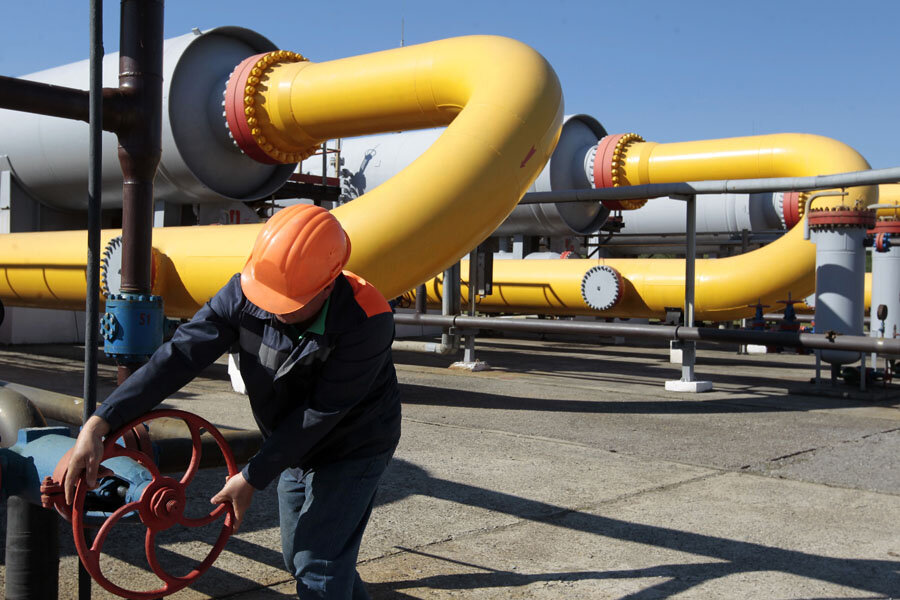Ukraine struggles to keep natural gas flowing from Russia
Loading...
| Moscow
Cash-strapped Ukraine sought to buy time in its effort to ensure continued gas supplies from Russia, making a $15 million payment to Moscow on Friday as it waits for international rescue loans to arrive.
But Moscow says the sum will cover only an additional day, leaving a potential cut-off looming Tuesday.
That increases pressure on Ukraine to strike a deal at an upcoming meeting with Russian officials in Brussels on Monday, amid rising fears in Europe that energy supplies could be threatened by a shutdown to Ukraine.
With Ukraine's economy on the brink of collapse and money from a 15.5 billion euro ($17.5 billion) bailout deal from the International Monetary Fund that has not yet made it to Ukrainian coffers, it is unclear how capable — or how willing — Kiev is to strike a long-term deal with Moscow.
Andrei Kobolev, an executive with Ukrainian state gas company Naftogaz, said the $15 million was sent Friday as an advance payment. Russian supplier Gazprom said it would only buy another day at the current rate of supply.
Following a bruising dispute over prices and debt that raised fears of supply disruptions in Europe, Russia and Ukraine signed a deal in October requiring Kiev to pay in advance for gas shipments.
President Vladimir Putin and other government officials warned earlier this week that Russia would cut off supplies to Ukraine by the end of the month barring further pre-payments.
Russian Energy Minister Alexander Novak said Friday that Moscow would continue deliveries to Europe even in the event of a cut-off to Ukraine, but could not guarantee that Kiev would not illegally siphon off gas for its own consumption.
"If there are no payments from Tuesday, then the deliveries will stop," he said in comments carried by Russian news agencies. "Given that the Ukrainian side does not have the volumes to fully ensure its needs... then there is a risk that it will snatch (gas) from the export pipeline."
A similar dispute erupted in 2009, when Russia first cut off supplies to Ukraine and later to Europe, after it accused Kiev of siphoning off funds earmarked for export. That left many households in southeastern Europe without heating in some of the most chilling days of winter.
Some European states have attempted to provide Ukraine with gas through reverse flows — that is, sending gas back to Ukraine after receiving their share through pipelines that travel across the country. Those states, however, have faced some pressure from Russia as a result.
Slovakia delivers 14.6 billion cubic meters of gas per year to Ukraine through reverse flows. Poland has been sending gas to Ukraine by reverse flow since 2010. In September, Poland discontinued deliveries for a few days in response to Gazprom's reduction of deliveries to Poland.
Another roadblock to a deal could be deliveries to Ukraine's war-torn east, where fighting between Kiev's forces and Russia-backed rebels has left nearly 5,800 people dead since April.
Last week, Ukraine cut gas supplies to areas controlled by the rebels, prompting Russia to pump gas directly to the area. Russia said the deliveries should be counted as a part of the overall volume of its gas exports to Ukraine, but Kiev protested, saying it could not manage distribution in areas outside its control.
Putin on Wednesday angrily denounced Ukraine's decision to halt gas supplies to eastern regions, home to 4.5 million people, saying it "smacks of genocide."
"If the Ukrainian authorities consider it part of their territory, they should be fully responsible for the situation there," he said. "And if it's not so, they should openly say that."





